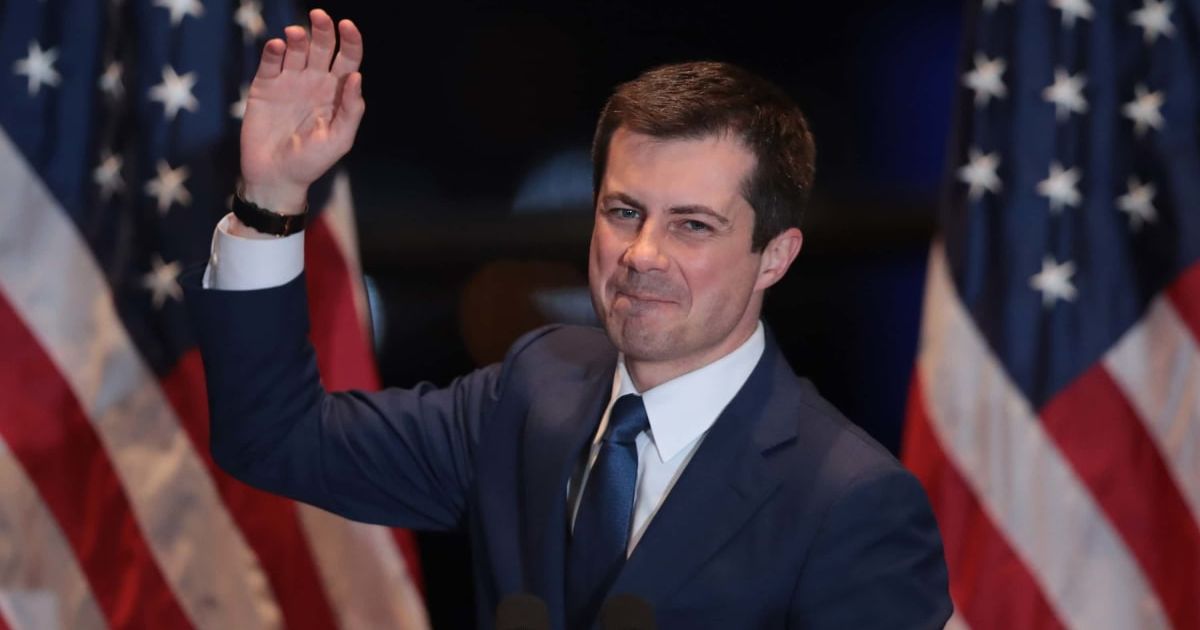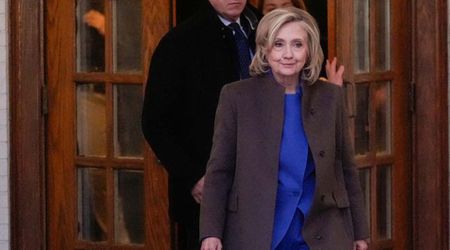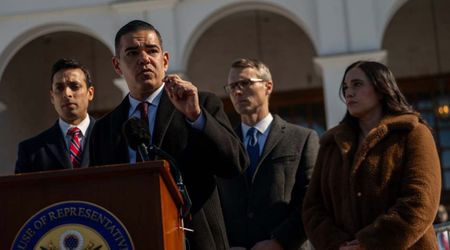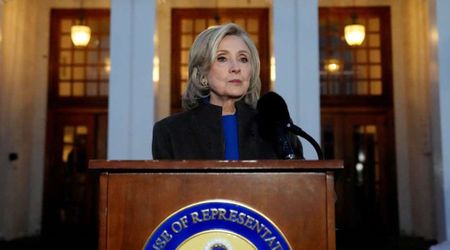Pete Buttigieg blames climate change for rise in flight turbulences, Internet says 'typical DEI hire'

WASHINGTON, DC: Transportation Secretary Pete Buttigieg has pointed to climate change as a significant factor behind the recent increase in flight turbulence.
In an appearance on CBS’ 'Face the Nation' on Sunday, May 26, Buttigieg insisted that the effects of climate change are already impacting the transportation sector.
He predicted that turbulence would continue to "affect American travelers, whether here or abroad."
“The reality is, the effects of climate change are already upon us in terms of our transportation,” Buttigieg declared, before claiming extreme weather conditions, exacerbated by climate change, are creating new challenges for the transportation infrastructure.
“We’ve seen that in the form of everything from heat waves that shouldn’t statistically even be possible threatening to melt the cables of transit systems in the Pacific Northwest, to, as you mentioned, hurricane seasons becoming more and more extreme and indications that turbulence is up by about 15%,” he continued.
“That means assessing anything and everything that we can do about it.”
Clear-air turbulence on the rise
Buttigieg’s comments come in light of a study published in the journal Geophysical Research Letters last year.
The study found significant increases in clear-air turbulence (CAT) between 1979 and 2020. Specifically, “severe-or-greater” turbulence, the strongest category of CAT, has become 55% more frequent over the North Atlantic during this period.
“Our climate is evolving,” Buttigieg noted. “Our policies and our technology and our infrastructure have to evolve accordingly, too.”
This year has already seen several severe turbulence incidents that have resulted in injuries and fatalities. On Sunday, 12 people were injured after a Qatar Airways flight from Doha to Dublin experienced turbulence over Turkey.
Dublin Airport reported that six passengers and six crew members were injured, with eight individuals requiring hospital treatment.
The aircraft landed just before 1:00 pm local time and was met by emergency services, including airport police and the fire and rescue department. In another incident last week, a Singapore Airlines flight encountered severe turbulence, resulting in one fatality and 30 injuries.
While Buttigieg acknowledged that deadly turbulence like that experienced on the Singapore Airlines flight is “very rare,” he stressed the importance of preparedness and communication.
“Turbulence can happen and sometimes it can happen unexpectedly,” he said.
“Now, there are protocols and patterns for things like how pilots who encounter turbulence can notify those who might be coming in the path. But I do think we need to continually re-evaluate that in the face of the reality that these things are more frequent and more severe than before.”
In addition to turbulence issues, the aviation industry is grappling with internal quality and safety concerns. Boeing reported a 500% increase in employee submissions about quality and safety issues during the first two months of 2024 compared to the same period in 2023.
This surge in reporting followed an incident on January 5, when a section of an Alaska Airlines 737 Max 9 plane blew out midflight. Boeing views the increase in submissions as “a sign of progress toward a robust reporting culture.”
Buttigieg expressed support for this trend, saying, “It’s encouraging to see that aviation employees are fostering a culture of ‘if you see something, say something.’ We want you to err on the side of reporting. The concerning part, of course, is that any of those issues are happening at all.”
Boeing leaders are scheduled to meet with the Federal Aviation Administration (FAA) on Thursday to present their plan for improving quality control. The FAA had given the company 90 days to develop this plan in late February, CNBC reported.
Pete Buttigieg mocked on social media
Buttigieg’s comments about climate change and turbulence sparked quite a backlash on social media, with many mocking his statements and suggesting he was deflecting responsibility.
"Oh no....the changing climate," one posted on X.
"Damn. I thought it was white supremacy. I’m getting these narratives confused," another quipped.
"You sure it wasn't COVID? Or 'transphobia'? Maybe 'systemic racism'?" someone else joked.
"Present day Liberals version of 'the dog ate my homework,'" a comment read.
"Typical DEI hire. Never accepting responsibility for their failures," someone else offered.
Damn. I thought it was white supremacy. I’m getting these narratives confused.
— DS (@sowell_dj) May 27, 2024
Typical DEI hire. Never accepting responsibility for their failures.
— Maggie Maye (@k74607492) May 26, 2024
This article contains remarks made on the Internet by individual people and organizations. MEAWW cannot confirm them independently and does not support claims or opinions being made online.










